image: Material Politics |
 some rights reserved
some rights reservedQuito, Ecuador
infrastructure
proposal (Buildify submission)
12 October 2016
#GC2022 is accepting submissions - 25d 27h 05m 44s
 some rights reserved
some rights reservedThe project seeks to construct a Cultural Factory in Atucucho, a settlement in the north of Quito (Ecuador). Developed through a unique alliance that brought together a local youth group from Atucucho (Cofradía), its autonomous Government and Community Bank, a research group from the University of Manchester and an Ecuadorian architectural practice devoted to social interventions (Al Borde), the Factory intends to gather, test and disseminate popular building technologies in deprived settlements in Quito. With a focus on the reclamation and reuse of concrete cylinders, the Factory will provide building solutions for incremental architectures in Atucucho. The initiative prefigures a form of urban development that accentuates the direct involvement of local organisations in the production and construction of social habitat, confronting models that have turned the transformation of peripheral settlements into a new terrain for rapid capital accumulation.
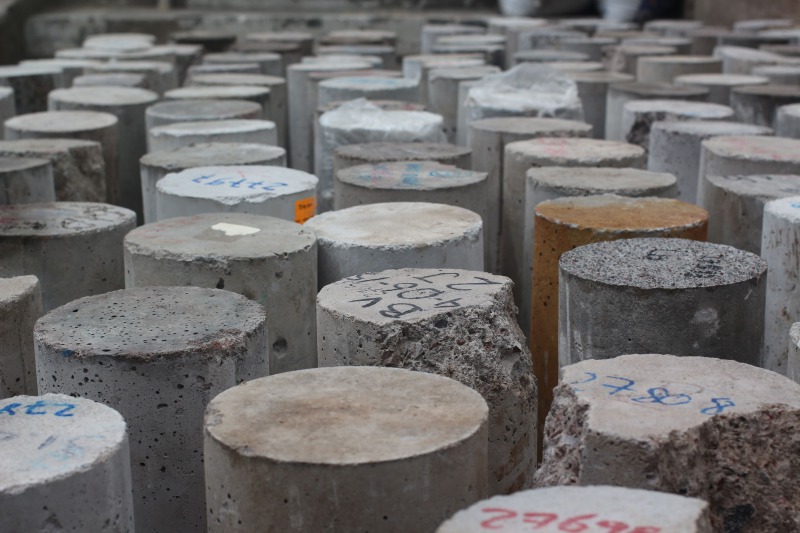
 some rights reserved
some rights reserved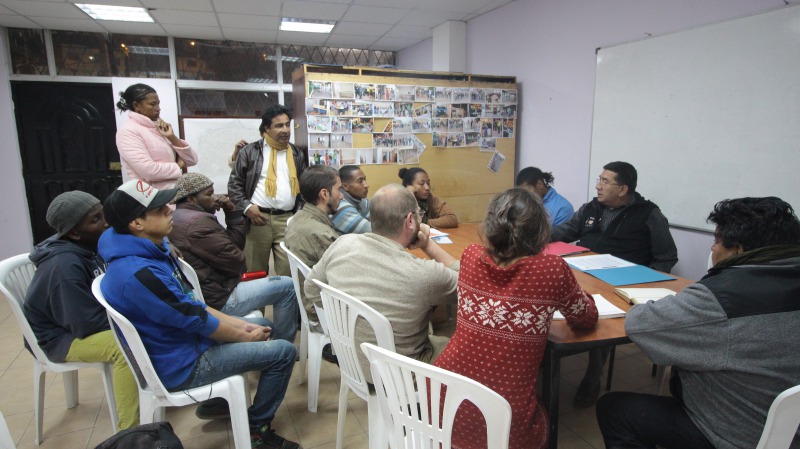
 some rights reserved
some rights reservedThe aim is for the Factory to develop into a sustainable co-operative platform, affording job security to the local youth movement. The Factory will be established as a non-for profit organisation, serving a dual purpose for the community. Firslty it will provide construction services to the community. Focusing around the use of the concrete cylinders as a building material, the youth movement will offer and provide building advice and labour for local projects. In addition, and through a direct partnership agreed with the autonomous government of Autucuho, the cyllinders will be adapted to serve as paving blocks for local streets that lack asphalt solutions. Secondly, the Factory will serve a cultural purpose. The spatial program for the site allows for a space to hold seminars where seminars regarding popular building technologies and practices will be held. The dissemination of the practices and knowledges developed in the Factory is an integral part of the project. Sapce for community gathereings are restricted to the community centre adjencent to the Bank, the local government offices and improvised arrangements and settings provided by religious institutions. The ambition is for the Cultural Factory of Atucucho to pave the way for the creation of a federation of Factories in the north of Quito addressing the need to democratise access to the production and circulation of building materials. In addition, the open patio planned for the Factory, will be preserved as a public square, transforming the Factory into a communal space. The Factory of Atucucho will serve as a platform to support popular construction practices, consolidate networks of co-operation across northern settlements and redistribute the benefit stemming from building processes.
Funded by the ESRC (UK research council), the original project set out to invesrtigate popular construction practices in deprived settlements in Ecuador. One of the aims was to identify and describe the role voluntary and co-operative labour played in the development of incremental architectures of urban peripheries. As an output of this investigation, we identified and mapped local actors associated with construction practices in the neighbourhood and crafted a catalogue of the material flows in Atucucho. The project registered the role hardware stores, improvement committees, the local comunity bank, the authonomous government and local organisations were playing in the settlement's physical transformation.
This initial research provided the foundations for the second stage of the project which sought to democratise access to and redistirbute the benefits from construction practices in Atucucho. Three local actors were interested in establishing a local construction cooperative: the youth organisation Cofradía, the community bank of Atucucho and its autnomous government. In addition, the research team from the University of Manchester (Material Politics) and the Ecuadorian social architecture group, Al Borde, agreed to participate in the development of the project, contributing technical expertise and providing initial financial support through research grants.
Youth organisation, Cofradía: the group is made out of 20 youth members. They were set up 6 years ago. The group has a wide experience in conducting social activities in the settlement. In addition, all of the group members work in the construction industry. The group members have worked in different construction sites across Quito, normally on hourly contracts. The group proposed to combine cultural activities with construction practices.
Community Bank of Atucucho: the Bank of Atucucho was set up as a saving organisation focusing on providing financial assistance for housing improvements. Juan Tenorio, the Bank manager will provide commercial assistance to the youth movement.
Al Borde, architectural practice: an award-wnning practice, Al Borde is devoted to shifting design processes by establishing mechanisms of exchange and procurement regimes that outstrip the rigid parameters of monetary payments. Al Borde will provide technical assistance throughout the build.
Material Politics:is an architectural research practice based at the Manchester School of Arcthiecture (University of Manchester). Material Politics was in charge of conducting material ethnographies in Atucucho and developing the socio-political foundations for the proyect. Material Politics will focus on incremental interventions and the process of construction.
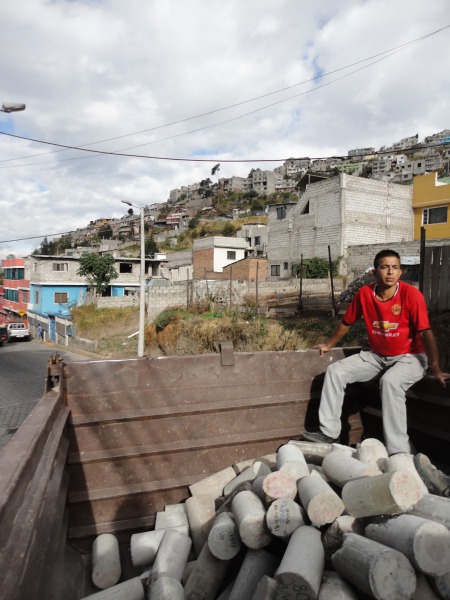
 some rights reserved
some rights reserved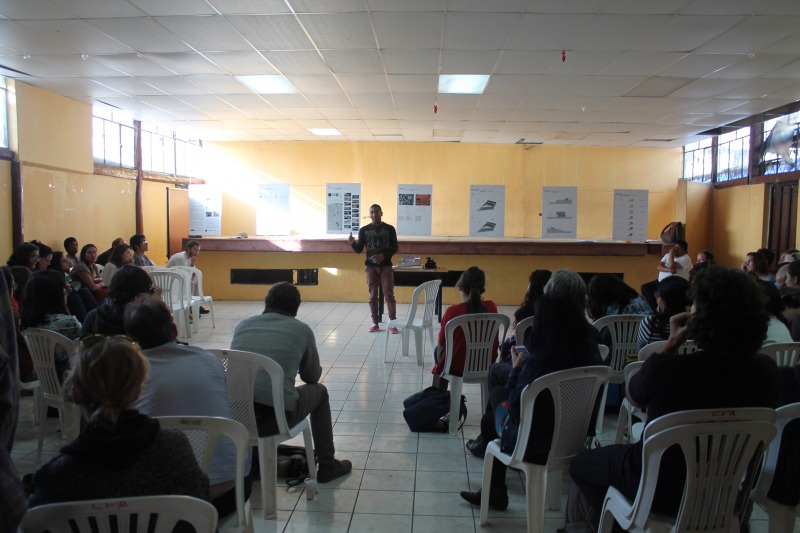
 some rights reserved
some rights reserved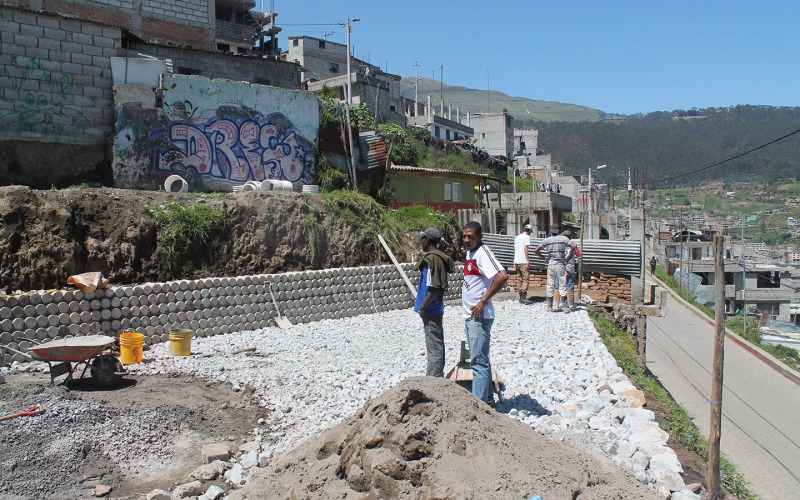
 some rights reserved
some rights reservedThere are no updates yet.